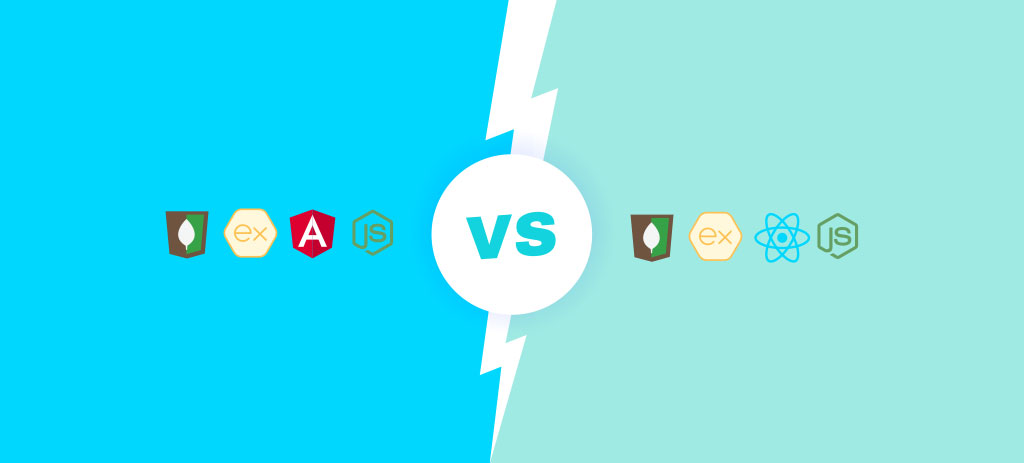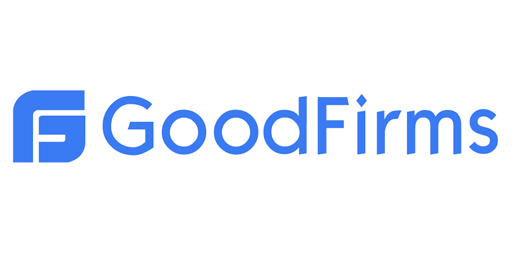MEAN vs MERN: Which Stack Reigns Supreme in 2024?

Choosing between the MEAN and MERN stacks can have a big impact on your project in the world of web development. Both stacks use MongoDB, Express.js, and Node.js to enable full-stack development. The main difference lies in their front-end technologies. (Imark Infotech, a leading player in MERN stack development services, has extensive expertise in this area.)
MEAN Stack
The MEAN stack leverages Angular, a powerful framework known for its consistent JavaScript coding. Angular is particularly well-suited for building complex applications with numerous features.
MERN Stack
The MERN stack utilizes React.js to provide flexibility and create dynamic User Interfaces (UIs). React.js is especially adept at constructing fast and responsive single-page applications.
Choosing the right stack for your project is crucial as it can significantly impact:
- Development Speed: Some stacks may enable faster development due to their feature sets or developer familiarity.
- Performance: Different stacks may exhibit varying performance characteristics, such as speed or memory usage.
- Scalability: Certain stacks may be better suited for handling substantial amounts of traffic or data.
- Maintenance: The choice of stack can influence how easy or difficult it is to maintain and update your project over time.
What is Full Stack Development?
Full Stack Development is a vital skill for modern tech companies. It involves working on both the front-end (client-side) and back-end (server-side) of an application. A full-stack developer possesses the capability to handle all stages of project development. These stages include planning, design, coding, and testing.
One common thread between the MEAN and MERN stacks is their use of JavaScript frameworks. These frameworks simplify the process of solving complex coding problems and increase productivity by providing pre-built solutions for common programming tasks. This is why they play a significant role in full stack development.
Understanding the MEAN Stack
The MEAN stack, an acronym for MongoDB, Express.js, AngularJS, and Node.js, represents a cohesive collection of JavaScript technologies that empower developers to build sophisticated web applications. This mean tech stack has garnered attention for its ability to streamline the web development process by using JavaScript on both the client and server sides.
Components of the MEAN Stack
MongoDB
A document-oriented NoSQL database designed for high-volume data storage. MongoDB is renowned for its scalability and flexibility, allowing developers to manage large amounts of data without compromising on performance.
Express.js
A lightweight server framework built on top of Node.js that simplifies the task of building web applications and APIs. It’s known for its speed and minimalism, providing essential features to operate a server.
AngularJS
A front-end web application framework maintained by Google. AngularJS enables developers to create dynamic, single-page applications (SPAs) that offer seamless user experiences.
Node.js
A server-side platform built on Google Chrome’s V8 JavaScript engine. Node.js facilitates non-blocking I/O operations that help in handling multiple connections simultaneously. This makes it ideal for data-intensive real-time applications.
Advantages of MEAN Stack
MEAN stack js brings numerous advantages to the table:
1. Uniform Language Across the Stack: Using JavaScript throughout all layers simplifies development as there’s no need to switch between languages.
2. High Performance and Speed: Node.js allows for non-blocking asynchronous execution, which can lead to improved performance and web application development.
3. Flexible and Scalable: MongoDB’s schema-less structure means that applications can scale more easily compared to those using traditional relational databases.
4. Strong Community Support: Each component of the stack mean framework has a robust community behind it. This contributes to a vast amount of resources and support available to mean developers.
Exploring the MERN Stack
The MERN meaning is a powerful combination of technologies that enable developers to build scalable and high-performance web applications. It consists of four main technologies:
MongoDB
A document-oriented NoSQL database designed for high-volume data storage.
Express.js
A lightweight and flexible Node.js web application framework that provides a robust set of features for web and mobile applications.
React
A declarative, efficient, and flexible JavaScript library for building user interfaces, maintained by Facebook.
Node.js
A JavaScript runtime environment that executes JavaScript code outside of a browser.
Why Choose the MERN Stack?
The MERN stack brings numerous advantages to the table when it comes to web development:
- Unified JavaScript Development: Using JavaScript throughout the better stack simplifies development as there’s no need to switch between programming languages.
- Component-Based Architecture: React’s component-based structure allows developers to reuse code and manage states more effectively across large applications.
- Real-Time Data Exchange: Node.js makes it possible to handle asynchronous calls and manage real-time data exchange seamlessly.
- High Performance: MongoDB offers high performance with features like sharding and replication.
- Large Community Support: Backed by industry giants like Facebook, the MERN stack enjoys strong community support, ensuring constant updates and a wealth of resources.
Why MERN Stack is more Successful?
Several companies have harnessed the power of the MERN stack to drive their projects to success:
- Airbnb: This popular lodging marketplace has utilized React to create intuitive user interfaces that provide an excellent experience across platforms.
- UberEATS: The food delivery arm of Uber has leveraged the benefits of the MERN stack for its restaurant manager system, optimizing operational efficiency.
- Instagram: Known for its visually engaging platform, Instagram has made significant use of React to ensure a smooth user experience with dynamic content updates.
Comparing the MEAN and MERN Stacks in 2024
When comparing the MEAN stack and the MERN stack, it’s important to understand the key differences between these two technology stacks. One of the main factors that sets them apart is the choice of frontend frameworks—Angular for MEAN and React for MERN. This decision not only affects the development process but also impacts the capabilities of the final product.
Frontend Frameworks: AngularJS vs React
Angular
- A comprehensive framework that provides many built-in features like form validation, routing, and state management.
- Uses a two-way data binding model to keep the model and view in sync, which is useful for real-time applications.
- Follows a more traditional MVC (Model-View-Controller) architecture, making it suitable for large-scale enterprise applications.
React
- A library focused on building user interfaces with reusable components, making development simpler.
- Utilizes a virtual DOM to improve rendering performance, which is crucial for dynamic applications with heavy traffic.
- Promotes a functional programming approach with one-way data flow, making it easier to manage data in complex applications.
Strengths and Weaknesses of Web Applications
Enterprise Applications
- MEAN: Strong infrastructure with Angular’s enterprise-friendly features.
- MERN: May require more integration effort due to React’s library-centric nature.
Single Page Applications (SPAs)
- MEAN: Offers a seamless user experience with Angular’s powerful routing capabilities.
- MERN: Ideal for SPAs due to React’s fast rendering with virtual DOM.
Real-Time Applications
- MEAN: Two-way data binding in Angular is beneficial for applications requiring immediate content updates.
- MERN: React’s efficient update and rendering system can handle rapid changes smoothly.
Scalable Applications
- Both stacks offer scalability with MongoDB and Node.js; however, MEAN might have an edge due to Angular’s modularity.
Choosing the Right Stack for Your Project: MEAN or MERN?
Selecting the appropriate technology stack is critical for the success of any web development project. Both mern vs mean stacks work with compelling features for full-stack development. The factors such as project requirements and team expertise play a pivotal role in determining the best fit.
Project Requirements
The nature and scope of your project can influence whether you opt for MERN stack vs Mean stack. Consider these factors:
Type of Application:
If your application requires a robust solution for enterprise-level systems. Then, MEAN stack developer might be more suitable due to Angular’s strong typing and scalability. For dynamic single-page applications, MERN alternatives with React’s virtual DOM offer quick rendering and a better user experience.
- Performance Needs: Analyze the performance demands of your application. Node.js provides a non-blocking I/O model that benefits both stacks in handling multiple requests. But React’s efficient update and rendering system might edge out Angular when high responsiveness is crucial.
- Complexity of UI/UX: For complex frontend development frameworks, Angular’s comprehensive feature set includes built-in solutions for forms and validations. Routing may be advantageous for complex front-end development frameworks. React’s library approach gives more flexibility but requires additional libraries for certain functionalities.
Team Expertise
Your development team’s familiarity with JavaScript frameworks is another decisive factor:
- Frontend Development Framework Proficiency: Assess your team’s expertise with Angular and React. Angular has a steeper learning curve due to its expansive feature set. Teams familiar with JSX and virtual DOM concepts might gravitate towards React.
- Backend Development Framework Familiarity: Since both stacks use Express.js and Node.js, existing knowledge in these technologies can simplify the backend development process.
Personal Recommendations
When advising on which stack to choose, consider these personal recommendations tailored to specific scenarios:
- Startups & Rapid Prototyping: MERN stack can accelerate development with its simplified data flow and state management with React. It’s ideal for startups looking to build MVPs quickly.
- Large Scale Applications: MEAN stack might be more appropriate for large-scale applications because of Angular’s strong ecosystem. This provides out-of-the-box solutions for complex requirements.
- Real-time Data Handling: For applications that require real-time data updates like chat applications or live content streaming, both stacks perform well with Node.js at their core. However, React’s state management through Redux or Context API could make handling dynamic content slightly more intuitive.
Imark Infotech: Empowering Businesses with the MERN Stack Advantage
Imark Infotech is a leader, delivering advanced web solutions that fully utilize the MERN stack architecture. The company’s reputation for excellence is built on innovative strategies and client success.
Leading Player in MERN Stack Development
Imark Infotech has earned its status through:
- Expertise in MERN Stack: Their team of developers has deep knowledge and skill in MongoDB, Express.js, React.js, and Node.js, ensuring smooth integration and high performance.
- Customized Solutions: Tailoring their approach to meet unique business needs, they create custom applications that are both strong and flexible.
Unique Value Proposition
The distinct advantages offered by Imark Infotech include:
- Agile Methodologies: Using agile development practices, they adapt quickly to changes and deliver projects efficiently.
- Focus on User Experience: With React.js as their foundation, Imark Infotech prioritizes creating user-friendly interfaces that engage users and improve interaction.
Expertise in Delivering MERN-Based Solutions
Clients choose Imark Infotech for:
- Scalable Applications: Harnessing the power of Node.js and MongoDB, they build applications that can grow with the business.
- Real-Time Data Processing: Their solutions excel in handling real-time data streams—a testament to their backend expertise with Express.js and Node.js.
Conclusion
The field of web development projects is constantly changing. The MERN Developers, project managers, and technology leaders must stay updated on the latest trends in full-stack development. The MEAN stack vs MERN stack are two important players in this area.
Both stacks offer strong, efficient, and scalable solutions for building modern web applications. Each has advantages and unique features that meet different project needs and preferences.


